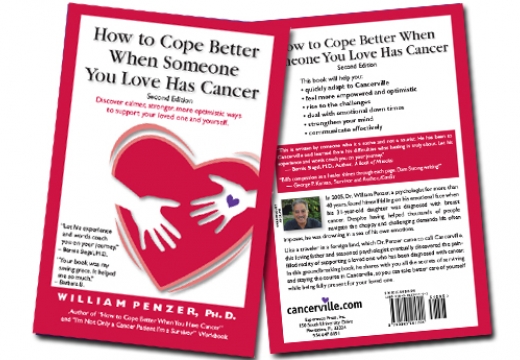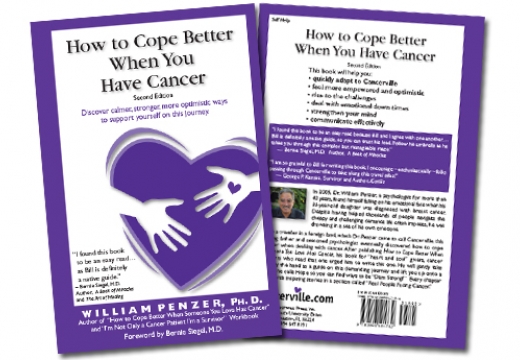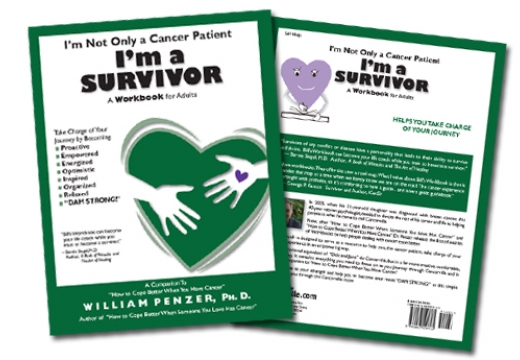-William Penzer, Ph.D.
A woman named Lisa emailed me and said, “I received my cancer diagnosis in a letter.” That prompted this article, as such a situation to me seems sacrilegious, scary, and sad—unimaginable really! It made me wonder where the human/personal/caring element of medicine has gone. Have we been reduced to form letters or emails that simply check off a diagnosis of such a serious nature? You have cancer—please call my office to schedule an appointment in about a month as we are all booked up.
My spoof was not far off. Her letter said, “This letter is sent as confirmation (sic) the results of your thyroid biopsy. The cytopathology results were malignant…. We will be contacting you soon about seeing an expert thyroid surgeon in the area.” OMG! Sic, in case you aren’t aware, is used when there is a mistake in the quote. They couldn’t even write the letter right! But this whole thing is really sic(k) big time!
In many instances, the practice of medicine has become as cold and sterile as an OR. We sometimes seem to have lost the “care” in healthcare. Lisa has nine doctors involved, none of whom seem to be very involved, and a tumor panel whose responsibilities are unclear to her.
I Respect Physicians
I continue to have sincere respect and admiration for physicians and always have. Their training is rigorous and demands their brilliance, perseverance, and constant focus. They spend more time preparing for their profession than any other career of which I am aware—years of academics, internship, and residency.
Yet today’s doctors find themselves frustrated and flummoxed by a cumbersome system ruled by dictatorial and unmerciful insurance companies, “bureaucrazy” governmental regulations, and ever-hungry malpractice attorneys. The majority of doctors today would not recommend their once beloved profession to their beloved children—they report working longer, harder, and more stressfully—earning much less money than in the past. Some say, “One more Medicare cut and we are out of business.” Others see the day when all doctors become employees of hospitals.
Some doctors speak about the nightmare of trying to get testing and meds approved for their patients by a harsh and penny-pinching insurance system. A few even admit to writing down inaccurate or exaggerated diagnoses to get a test covered by insurance. Recent newspaper articles have described bank/airline-like fees being charged by some doctors to offset their losses. These include seeing the doctor without an appointment, doctors returning emails, paying bills in installments, missed appointments, doctors filling out forms, and the like. VIP medical plans charge a large upfront fee to provide the personal attention that used to be part of the practitioner’s practice. From just about every angle, everyone in this messy medical maze seems miserable.
To keep themselves afloat financially, many doctors must see more patients in shorter time intervals than ever before. Both doctor and patient can feel like a robot in a factory…NEXT! In a paradoxical way, the longer you are kept waiting, the more likely your doctor is being a caring physician by spending extra time with a patient, instead of being a factory foreman or woman.
It’s a Virtual World that Often Feels Unreal
In addition to the above, medicine has been mandated to computerize, which keeps doctors staring at screens instead of patients and working at home in the evening posting test results on a portal. HIPAA says everything is confidential—I say hackers may know my test results before I do!
When I first wrote that last line, I was being a little paranoid. Just today, my old line “It is not paranoid to be paranoid these days,” was validated. In a Wall Street Journal article called “A Risky Rx for your Digital Medical Records,” they report that more financial and other damage can occur from your health information being hacked than from credit-card numbers being stolen.
They go on to say that a 2011 report showed that healthcare organization hacking increased by 32% over the previous year, and since 2009 there have been more than 420 security breaches involving the records of 19 million patients. They say, “When those sensitive bits and bytes fall into the wrong hands, it’s often the patients who feel the pain.” It doesn’t seem like a portal in a storm is the right answer.
The Impact on Patients
What does all of this mean for you, the patient, in Cancerville? Where do you fit into this new world order of disorder in the practice of medicine? It will depend on the specifics of the doctors with whom you are working. Hopefully, you will receive the attention you need and deserve—but there are no guarantees. It has become a bit of a crapshoot and, in some cases, personal attention—the very essence of health and healing—has been reduced to near invisible levels.
Patients, in and out of Cancerville, need to be patient with a cumbersome medical system. Expect and come prepared for long waits before you get to see the doctor. Expect your visit to be brief, with the doctor speaking more rapidly than you can process his or her words. Anticipate confusions, misunderstandings, schedule gaffs, results that are uninterpretable, irritated and overworked staff who bicker with each other as well as with you. Sad to say, be prepared for a level of indifference and detachment at a time when you desperately need the very opposite.
If, in fact, you are not experiencing any of the above, by all means thank and compliment your doctors and their staff. Reinforce and recognize their “above and beyond the call” support, and feel grateful for receiving it. In today’s world a caring, connected, and compassionate doctor is a blessing.
How Not to Cope
What if the care you are receiving is less than caring? Here are some ways NOT to deal with it:
DON’T:
- Personalize these pervasive problems.
- Be intimidated by a system that doesn’t always work very well.
- Take out your frustrations on innocent staff, as many no doubt share your frustrations and they spend 40+ hours in that pressure cooker.
- Allow the defects and deficiencies to override your rights as a person and as a patient.
- Panic, overstress, or become hysterical.
- Lose faith in your getting through the medical maze successfully.
How to Cope
Here are my recommendations on what to do if you get temporarily stuck in any way in the medical maze:
DO:
- Bone up on and beef up your assertive skills.
- Ask for what you need and as many questions as you have to clarify the feedback you receive.
- Seek out doctors’ offices that are calm and peaceful, rather than chaotic, disorganized, and off-putting.
- Protect your insurance information as best you can.
- Bring a pen and pad or, if your doctor allows, a recorder to each meeting. An extra pair of ears helps too.
- Obtain copies of important records and test results.
- Try to ensure clear and accurate communications across all doctors on your team.
- Talk kindly to all medical caregivers, as that will increase the likelihood they will reciprocate.
- Seek a second opinion to confirm your diagnosis and treatment plan.
- Find alternative doctors if you are feeling neglected or not getting your medical needs met.
- Practice relaxation activities (i.e., yoga, meditation, guided imagery, etc) regularly to help you stay calm and remain focused.
- Seek out support from wellness centers, mental health professionals, and anyone else who can be a voice of reassurance and encouragement.
- Persevere by being your own best advocate, strongest lobbyist, and most persistent and patient patient.
In Sum
The maze of medicine is complicated, contorted, confusing, and at times crummy—sometimes very crummy! Take a deep breath, and let it out slowly. Do it again while assuming you will find your way and make your way to health, happiness, and harmony. Years ago, Norman Cousins declared, “A hospital is no place for a sick person.” That is still the case today, and the good news is that managed care companies will scoot you out ASAP.
Please try to hold onto the belief that the majority of doctors still do care, but have run into unanticipated obstacles and barriers. Trust those who you see or find those who you can trust. Work the program they recommend, and do everything in your power to have them work on your behalf. Hug your doctor, and perhaps he or she will return the warmth—they need it almost as much as you do.
As for my email friend Lisa, she wrote just yesterday that she is in remission. Her doctors may have let her down in many ways, but they did save her life. At the end of the day, that is what matters most. Health knowledge and technology are at the highest level ever; healthcare, in some instances, can use some work.
Back to Article List





